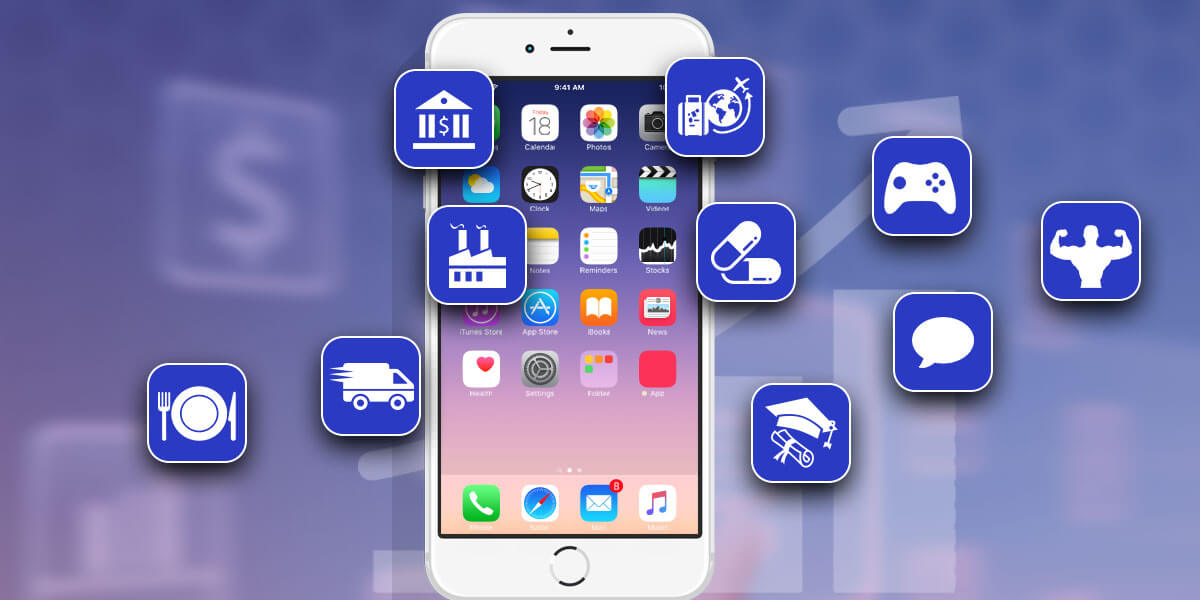Mobile apps are among the highlights of digital transformation, but only a fraction of businesses have them. Companies investing in mobile apps can enjoy better customer engagement and differentiate themselves from competitors.
Mobile apps also support online payments, customer service, and customer tracking. With millions of people using their phones to access the internet, an app is no longer an advantage but an essential part of success. Here are seven businesses that need an app:
1. Healthcare
The healthcare industry sees millions of interactions yearly, which calls for automation and process efficiency. Mobile apps can provide doctors instant access to the information they need regardless of location.
Businesses in the healthcare industry can also use mobile apps to collect patient information and provide instant recommendations. Examples include mobile apps for weight loss, pregnancies, health tracking, nutrition, and fitness.
2. Entertainment
The entertainment, gaming and betting industries feature various apps, including live streaming solutions for major sports events. Bookmakers develop unique sports betting apps to facilitate on-the-go gambling, while music companies offer convenient in-app streaming.
The entertainment industry also features social media apps like YouTube, and movie streaming apps like Netflix. Companies in this industry can use apps to create distinct experiences for their customers. Music, video, gaming, and betting sites all need dedicated mobile apps.
3. Finance
The finance industry has benefited from tech advancements. Mobile banking is a phenomenon on its own and allows consumers to manage their finances without visiting the bank or website. Most banks today have a dedicated app.
Apps enable customers to send and receive money securely and more conveniently. Customers can also use mobile apps to view account balances, pay bills, receive notifications about updates and financial activity, and more.
4. Hospitality
The hospitality and tourism industry has many uses for mobile apps. Hotels, restaurants, museums, and travel companies can use apps to provide convenient bookings. Customers book flights, reserve tables, view menus, and get exhibition tour information.
Apps make it effortless to pay for services and complete check-ins and check-outs. People can find location information, explore special offers, or order meals/drinks remotely. Companies can also send marketing information and collect valuable data.
5. Education
Schools can use mobile apps and learning management systems to provide dedicated portals for their students. The apps can feature important information and features to help students access their schedules, grades/report cards, assignments, and announcements.
Teachers can also use apps to relay notifications, lesson plans, and agendas, while schools can send messages to parents. The apps can also facilitate enrollment and fee payment or feature helpful resources for students, teachers, and parents.
6. Information Technology
IT companies developing unique apps for their clients may be a no-brainer. However, many tech companies don’t have a dedicated mobile app despite its many benefits. IT apps can boost work, enhance automation, and bridge functional gaps.
Apps like Slack and Basecamp are a few examples of mobile apps that support IT functions on the go. IT companies can develop apps to help with tracking, analytics, automation, messaging, marketing, optimization, and more.
7. E-commerce
Retail and e-commerce businesses rely on dedicated mobile apps to personalize customer experience. Apps allow companies to provide better customer service and streamlined operations optimized for their process and clients.
Mobile apps help with marketing, messaging, instant interactions, and logistics tracking. Apps also provide more convenient shopping experiences. Customers can go straight to the retail store without navigating through the browser.
Conclusion
There are many other industries that can benefit from mobile apps. Fashion, logistics, real estate, digital marketing, online farmer’s market, and non-profit organizations can all use apps. Mobile apps make the interaction more personalized.
Websites and mobile apps have many similarities, but apps don’t require a browser. Companies can also integrate more features that might not run effectively on the browser. Apps are known to increase customer loyalty, sales, and brand awareness.
